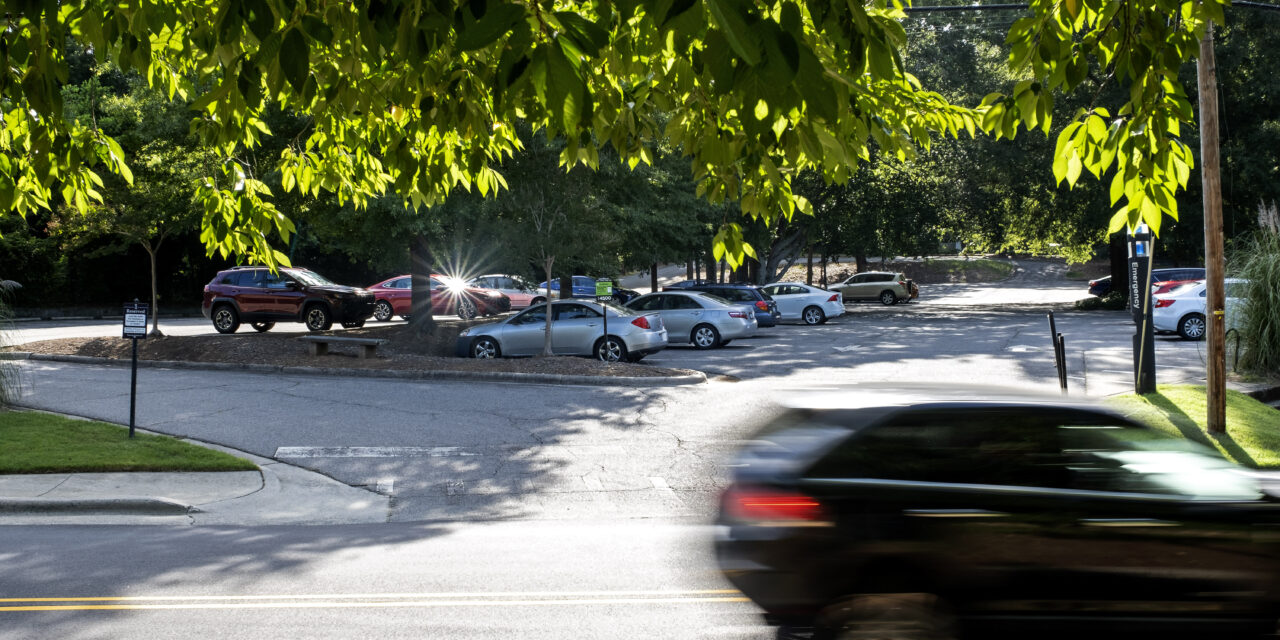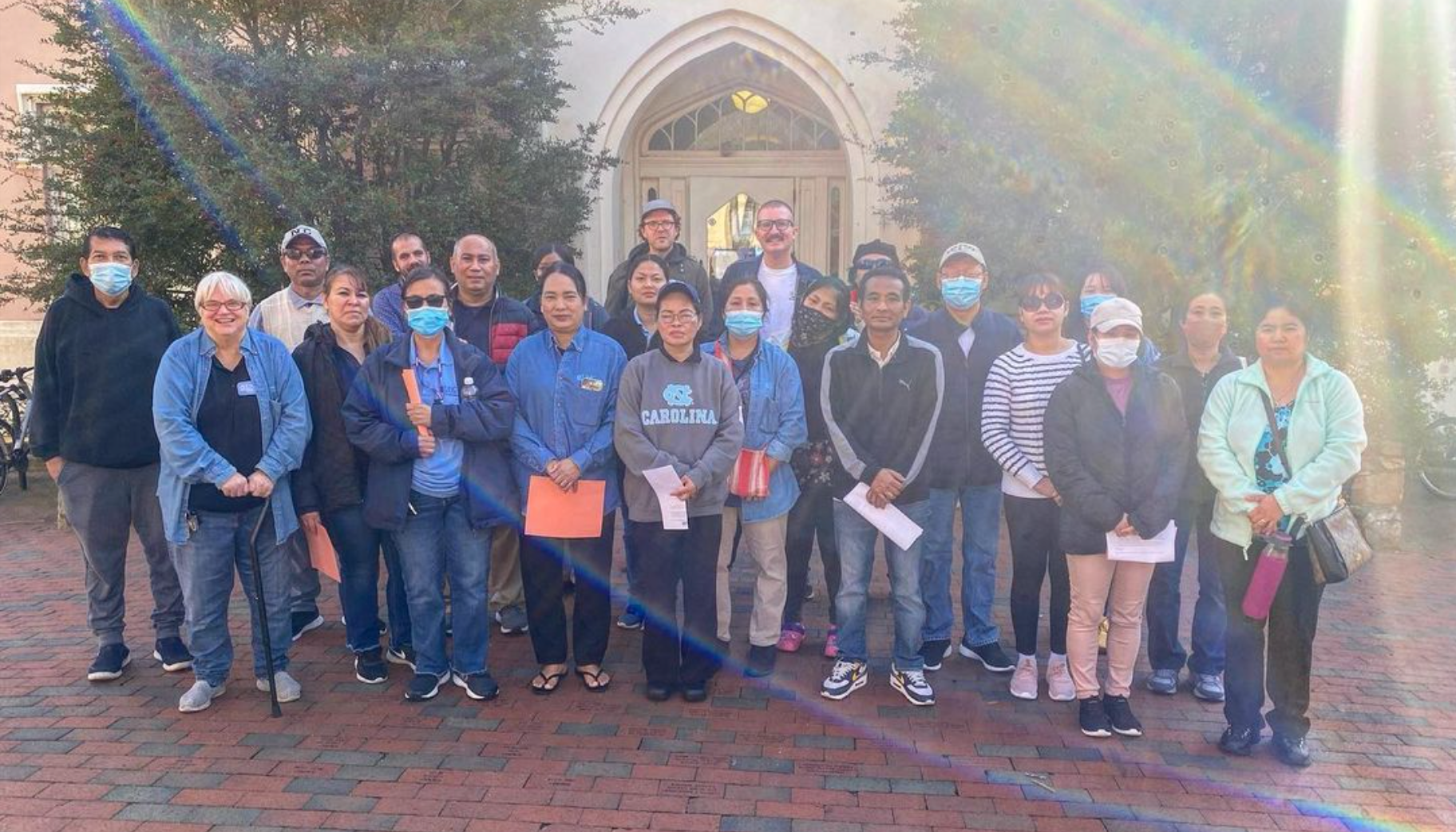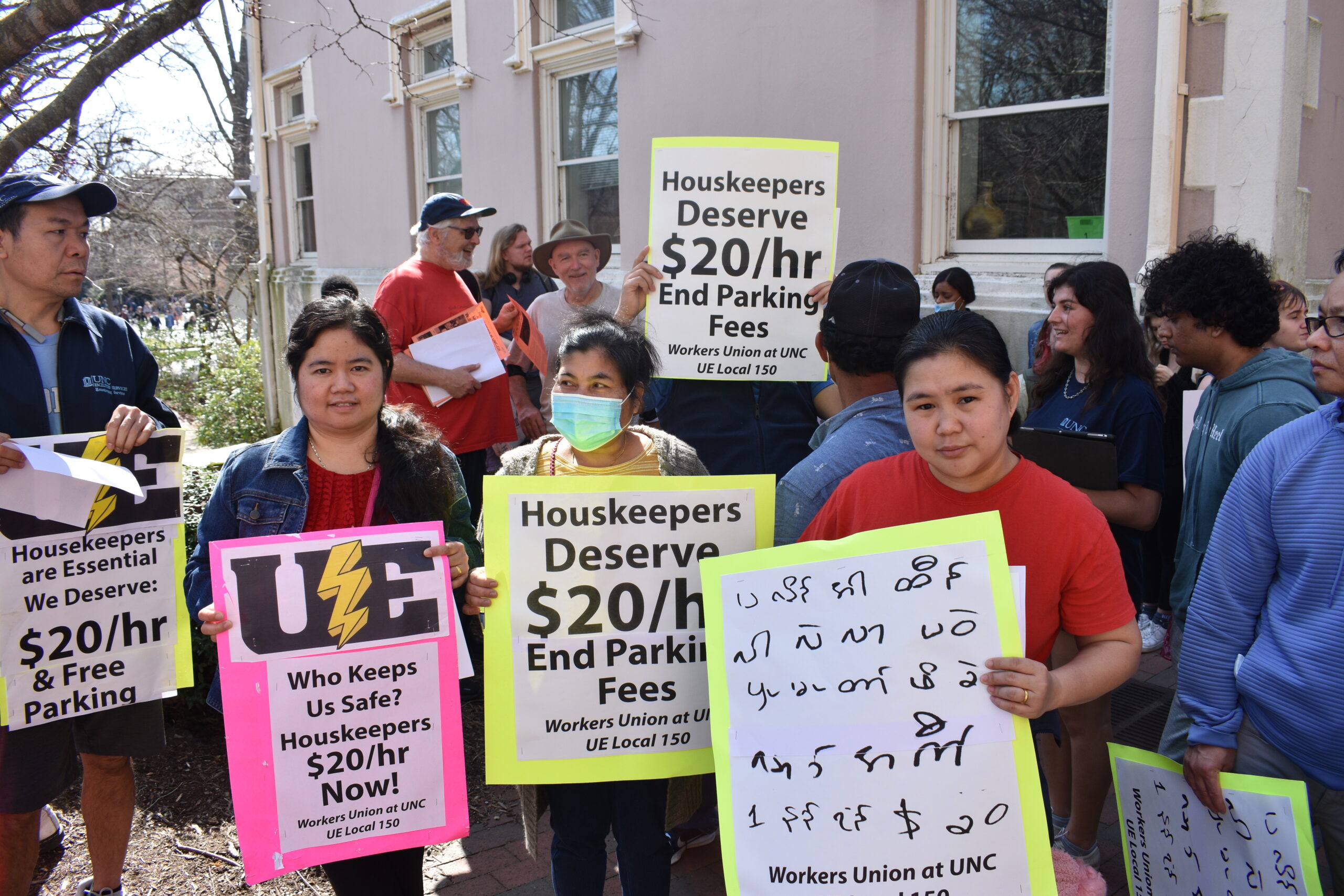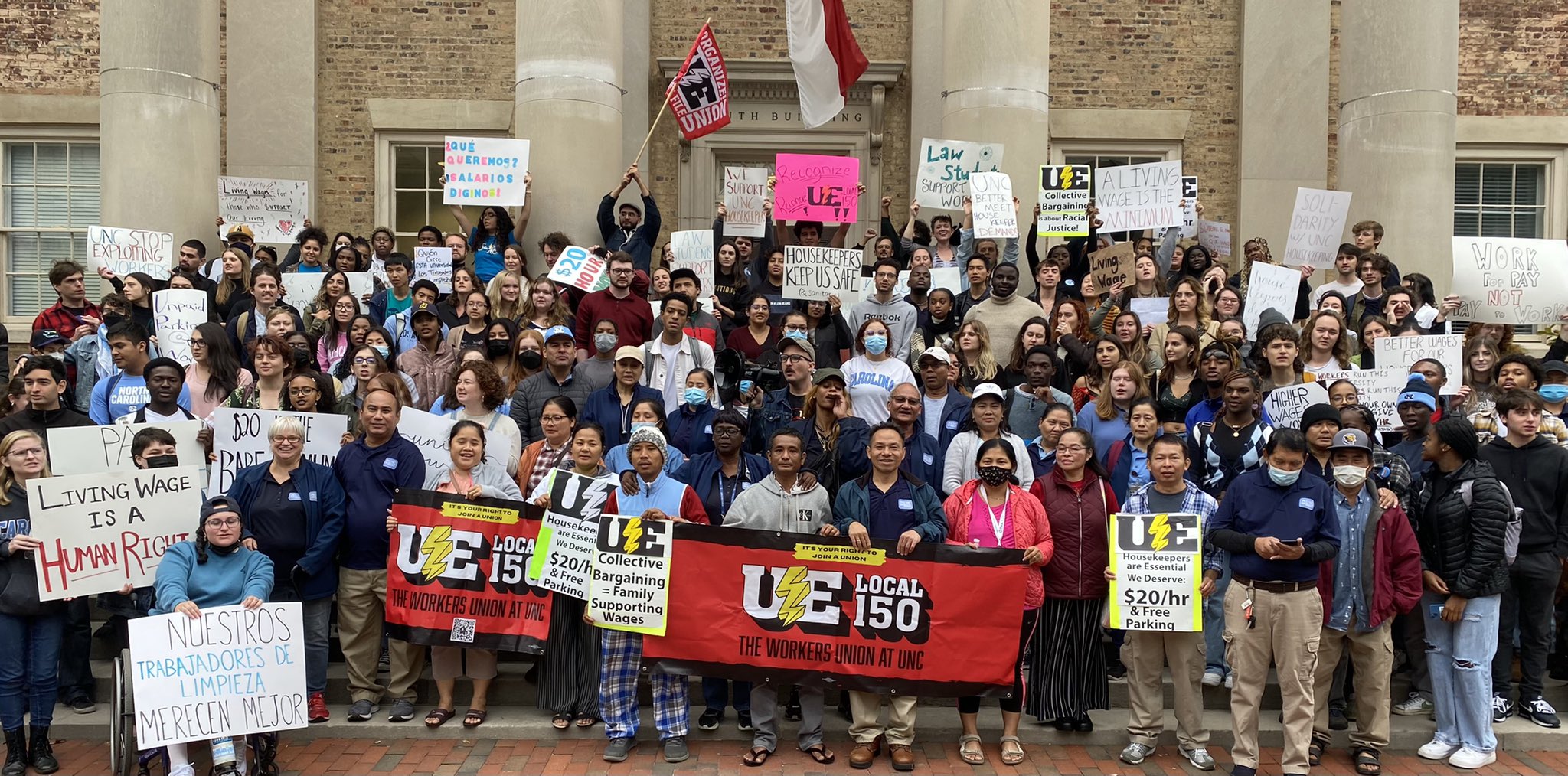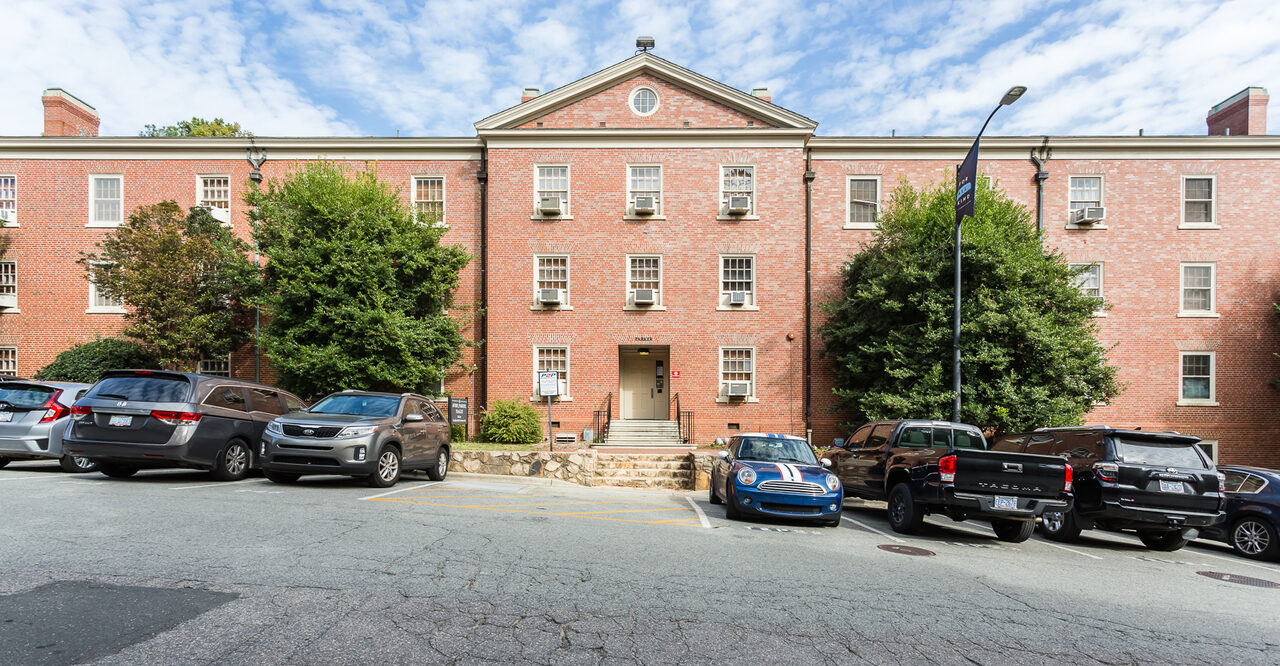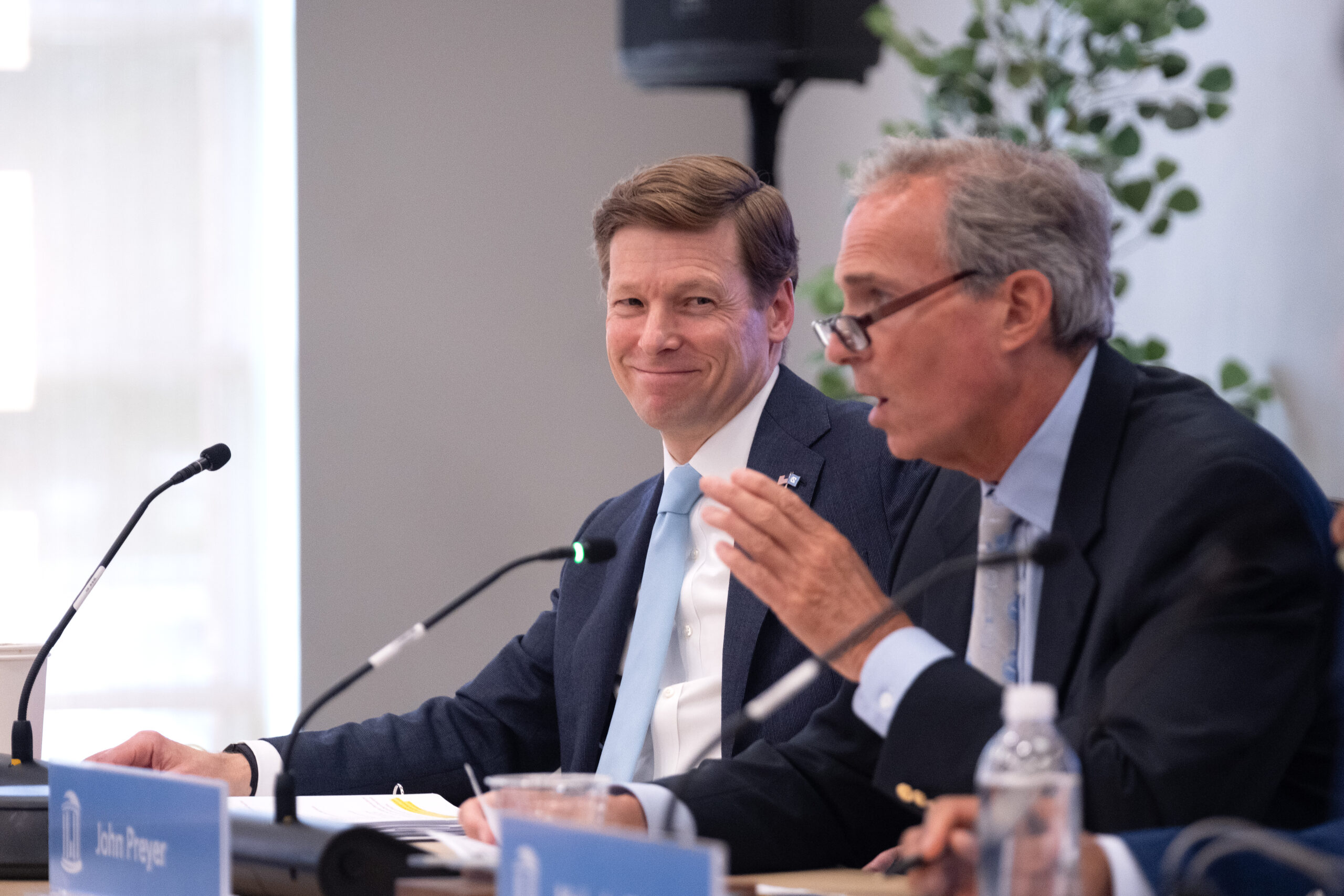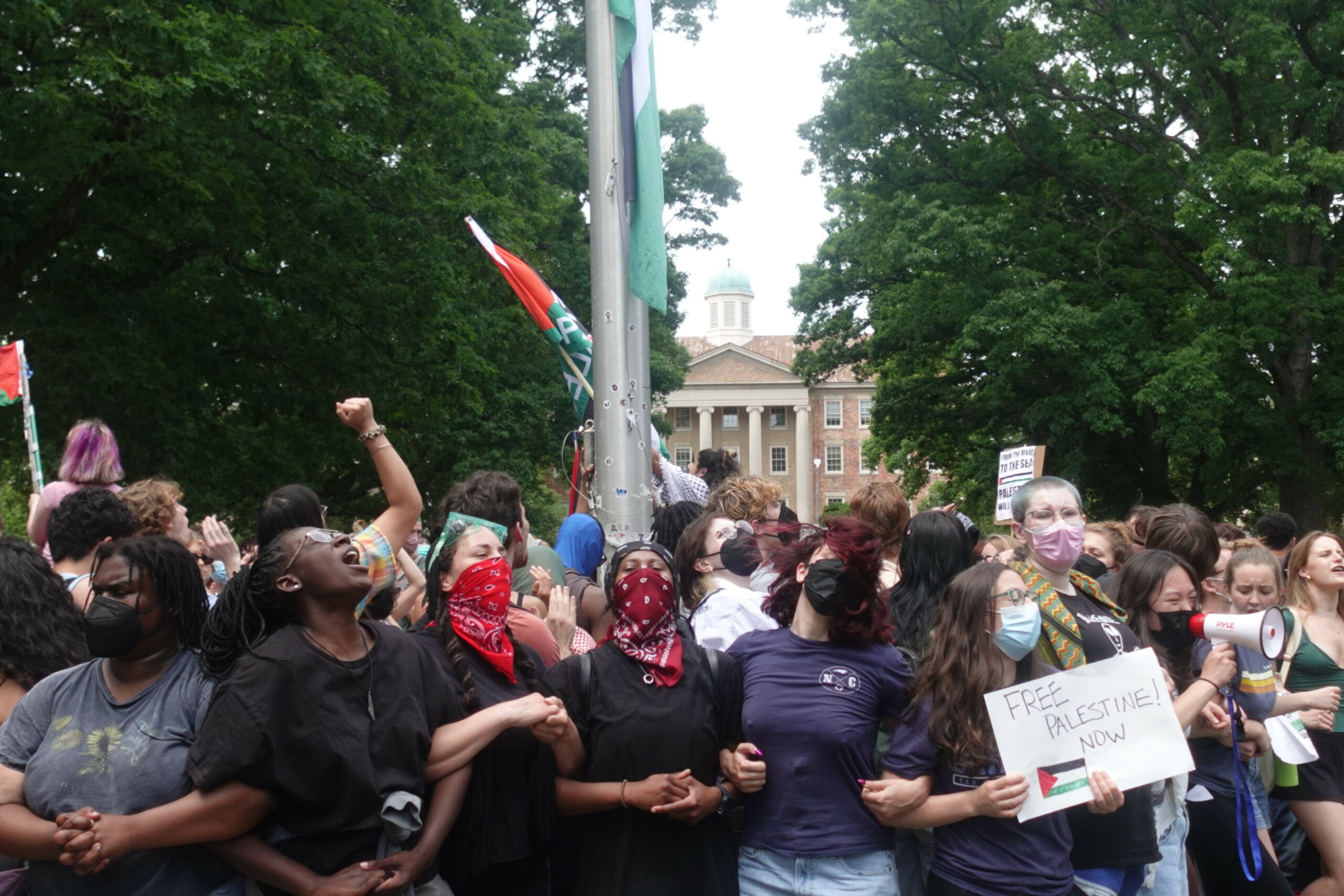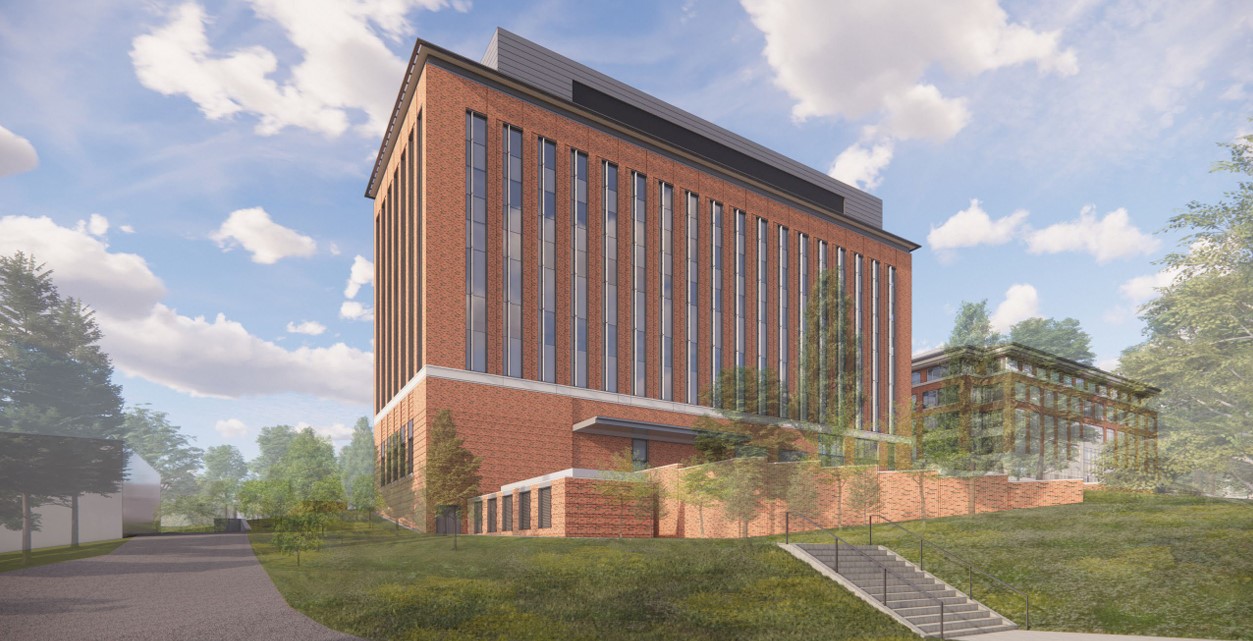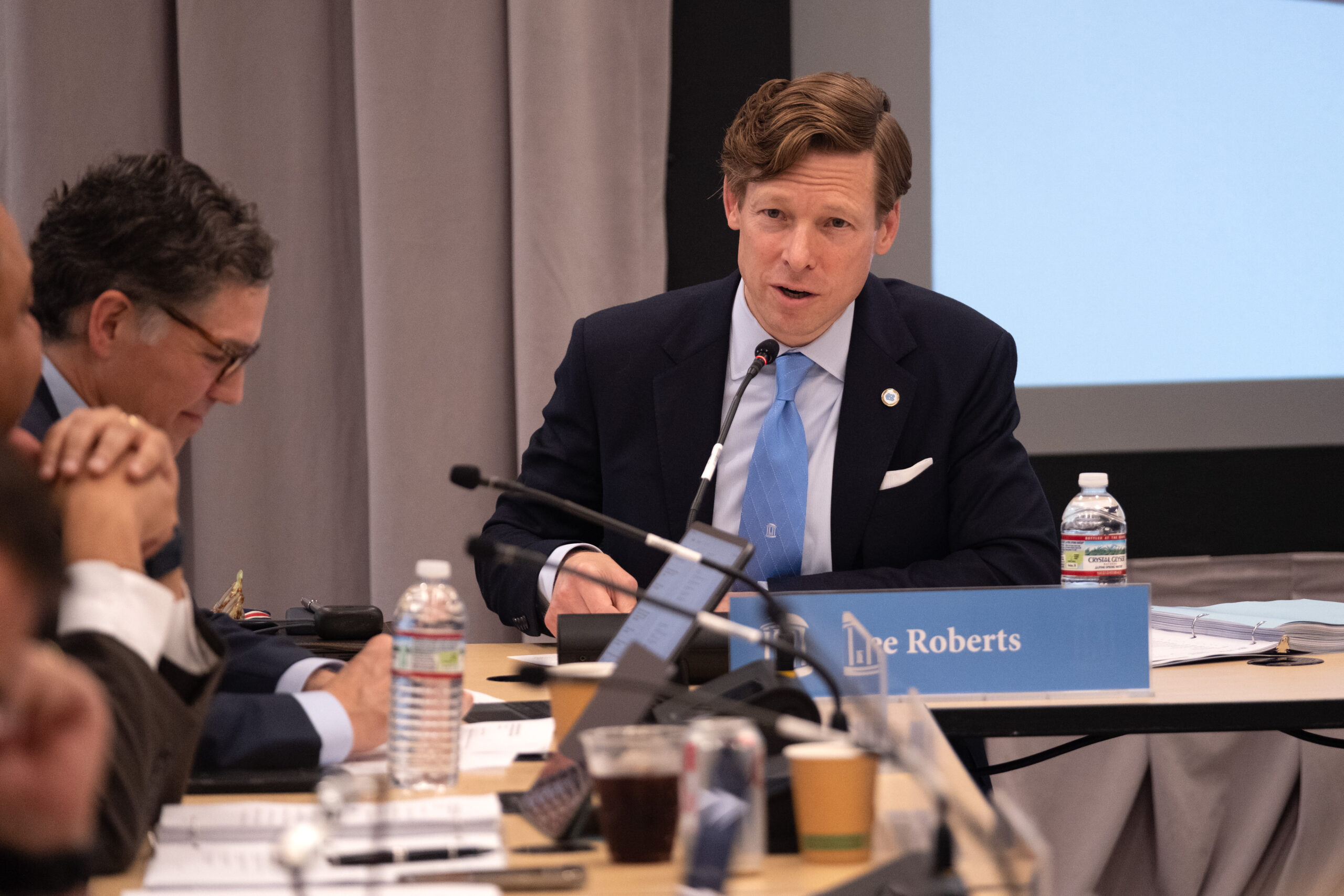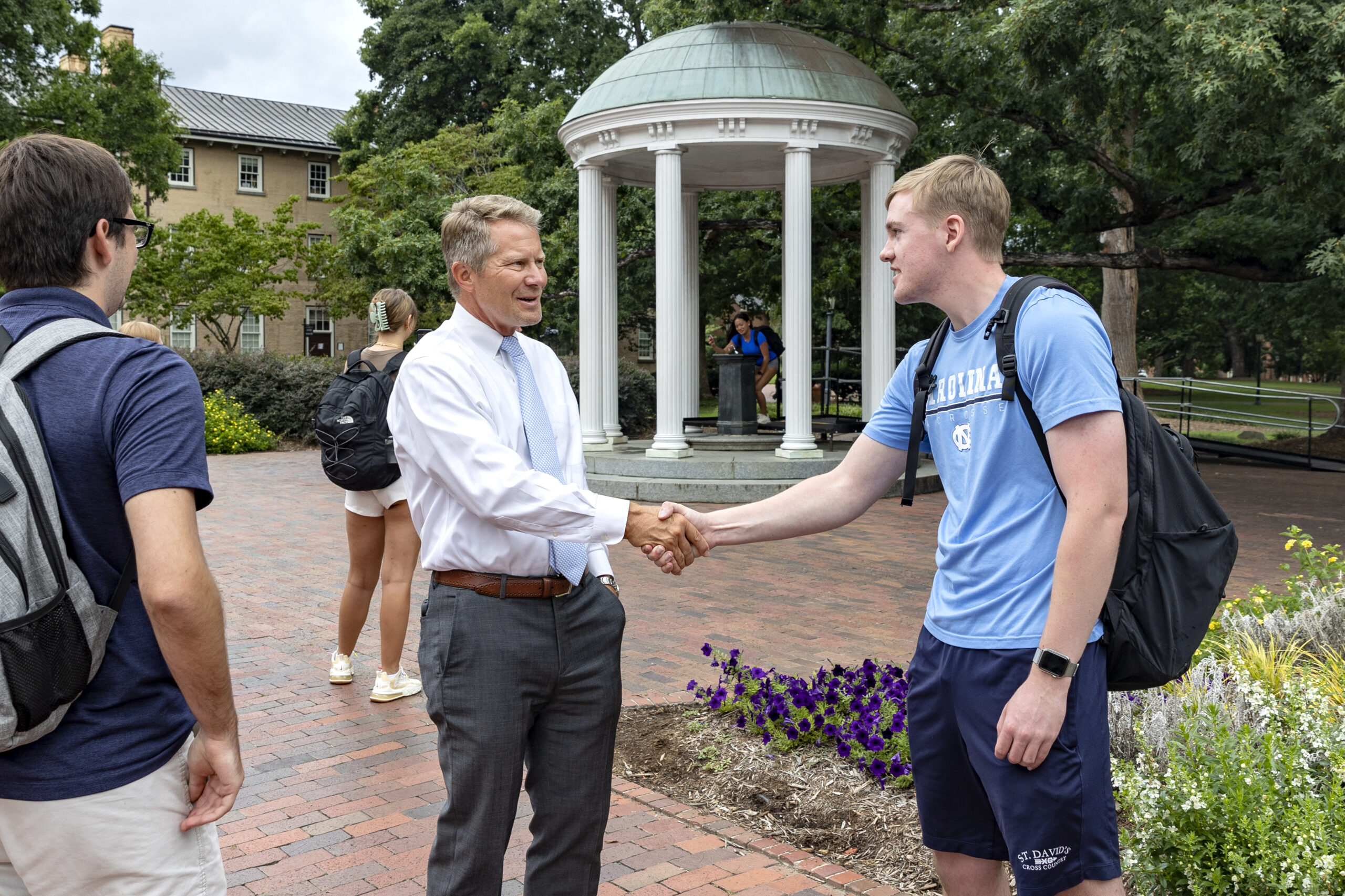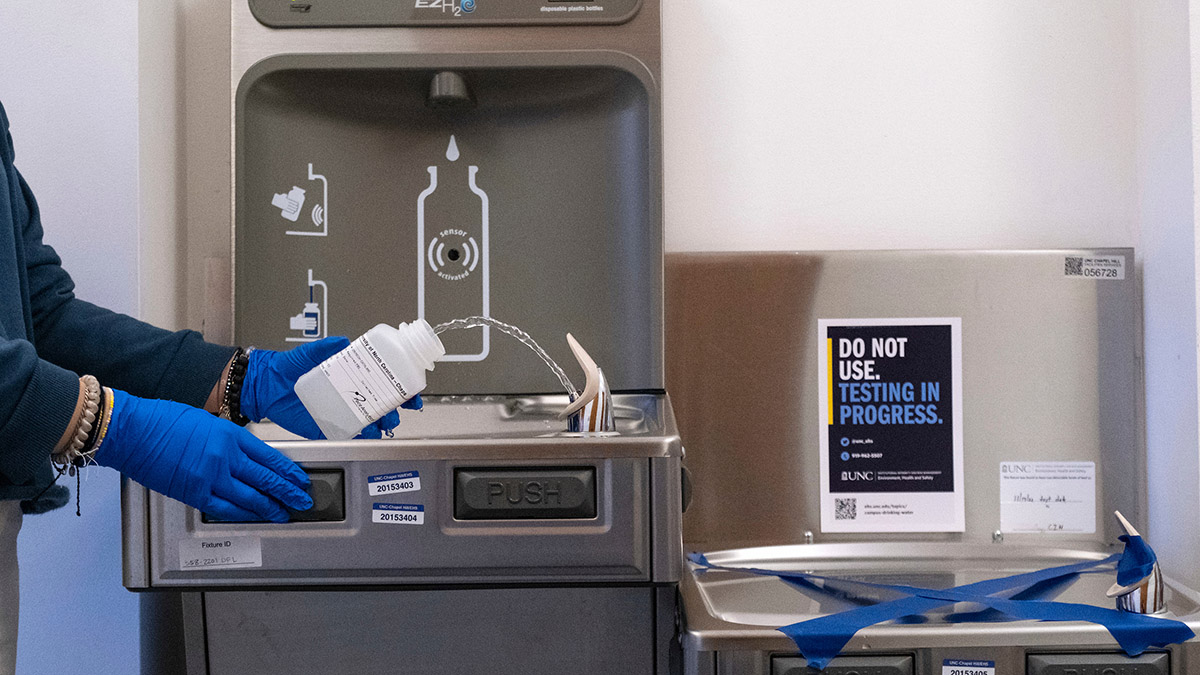At its recent Board of Trustees meeting, UNC approved a change to its parking permit fee structure offered to employees, students and visitors. It comes after efforts by advocates pushing for lower costs to the campus community and the university’s desire to better capitalize on its parking opportunities.
The approved changes by UNC are part of a new five-year parking plan developed by the university, meant to simplify parking rate structures, reorganize staff and technology, and improve safety. With those changes, UNC administrators say they hope to improve parking revenues – but also cost some of their lower-paid employees less.
Lower Rates for Low-Income Employees, Simpler Pricing Options
Vice Chancellor for Finance and Operations Nate Knuffman presented to the Board of Trustees on May 15 and said the first year of projected finances under the new parking model is nearly revenue neutral. He said by leveraging events and visitor parking more, those who park each day with a permit could see a big reduction in annual parking fees. Knuffman added it will be particularly clear for the employees who make less than $70,000 a year.
“Some of them are seeing sizeable reductions, in the order of 20 to 50 percent decrease in their parking cost,” said the vice chancellor. “[For those using the $200 flat rate options], that is roughly four dollars per week spread over 24 pay periods.”
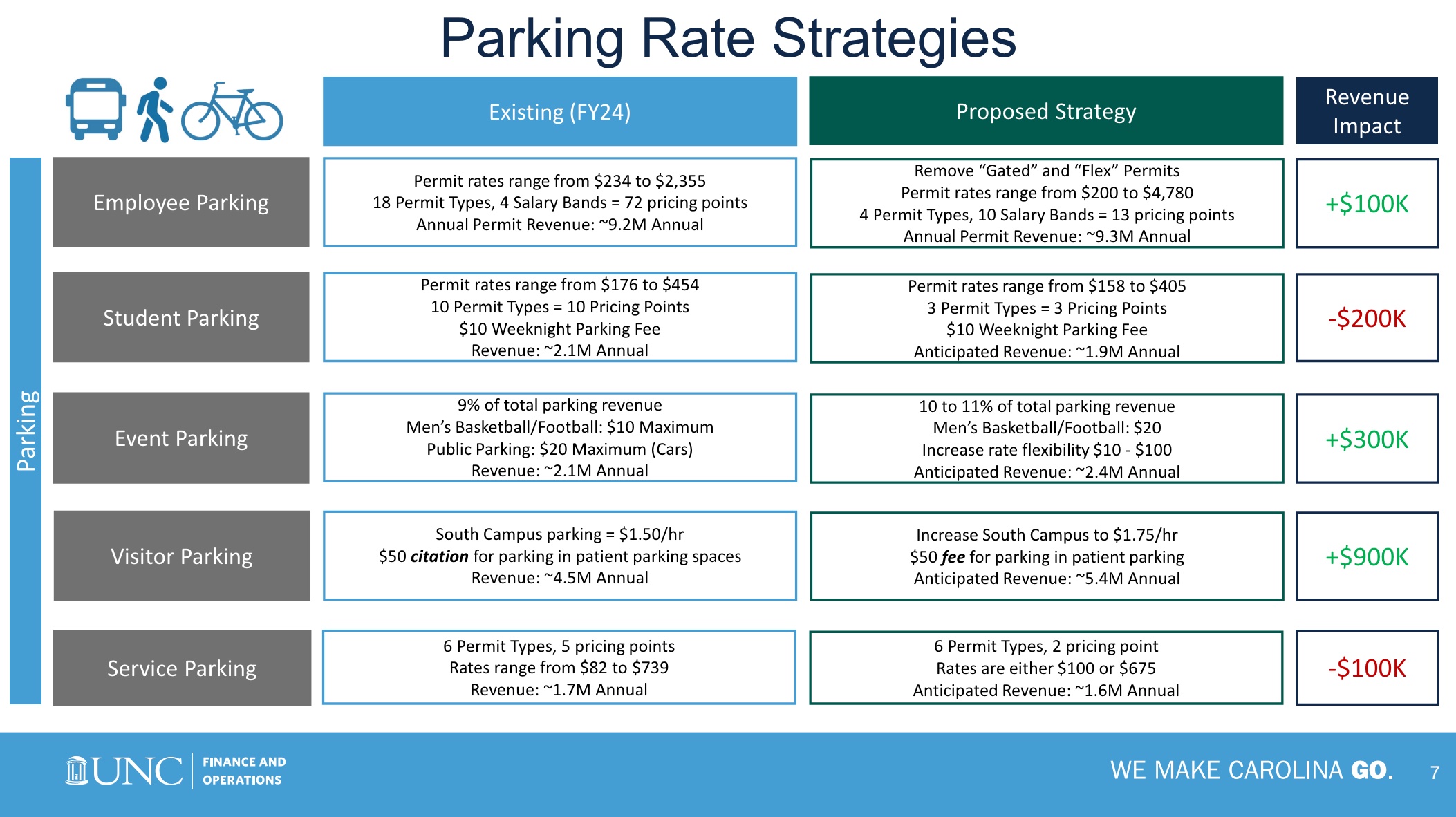
A chart presented to the UNC Board of Trustees on May 15, 2024 showing the most recent parking rate revenues and ordinances compared to the proposed new structure, which was later approved. (Photo via UNC Finance and Operations.)
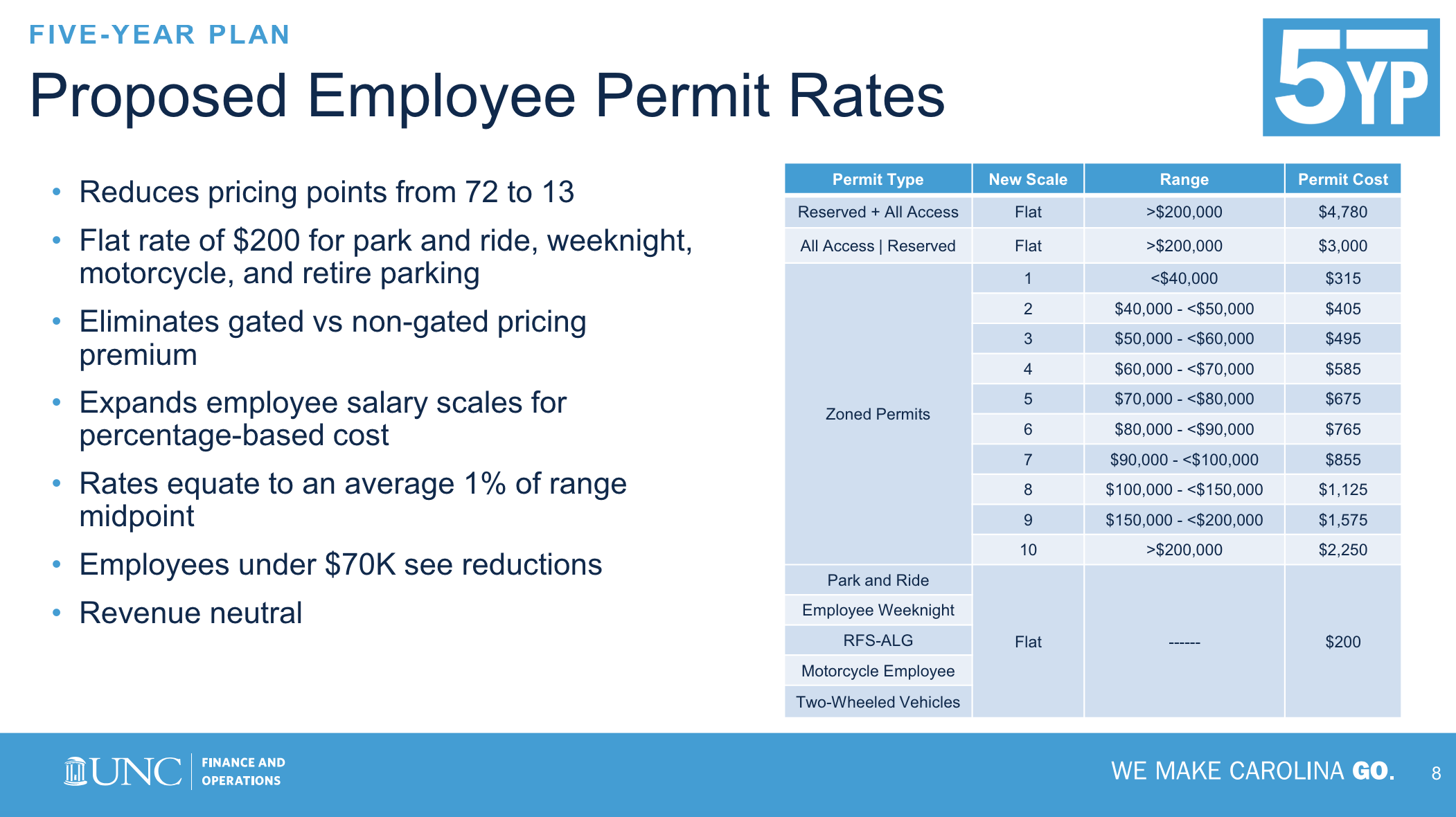
The latest price and permit structure for UNC employees, which was adopted by the Board of Trustees. (Photo via UNC Finance and Operations.)
The university also cut back on pricing options – moving from 72 different options for employees based on salary range, parking location and flexibility to just 13. For students, those options go from 10 price points to four. The lowest rate for both groups is a $200 flat fee that promotes park and ride, electric vehicle, and motorcycle options. The new pay scale for employee parking with zoned permits also dictates those making less than $40,000 a year will pay no more than $350 each year – which is hundreds of dollars less than nearly any parking permit option offered last fiscal year.
The Board of Trustees generally voiced support for the updates and unanimously approved the new parking ordinance for next school year, which will go into effect on August 1.
Housekeepers Believe More Can Be Done
Robin Lee is a housekeeper at UNC and the president of UE Local 150 – a service workers union at the forefront of advocacy for the university’s lowest wage earners. She said while some may see this change as a victory, it still falls short of what she believes is fair to housekeepers.
“No, I’m not satisfied with the parking [changes],” the five-year Carolina employee said. “Let the employees come to work and park for free.”
UNC’s estimated revenue from employee-permitted parking this year was around $9.2 million, which rises to more than $19 million when all other parking fees are included. With those revenues, Lee said she believes the university should do more to recognize the challenges facing its lowest-paid employees – especially if their wages are not going to be raised to reflect inflation and their bodies of work.
In the latest organized push to improve benefits for housekeeping staff in 2022, Lee and others requested two things from UNC: to let all housekeepers park for free and to increase minimum wages to $20 an hour. The latter request was met with a 90-cent raise approved in the winter of 2022, which former chancellor Kevin Guskiewicz’s administration celebrated as a step in the right direction.
But has that led to any substantial change in the quality of life for lower-income staff?
“None,” said Lee. “What can you do with 90 cents [more each hour] on a paycheck? I’ve got a part-time job at the Aloft hotel down the street. Every year, we do our annual reviews, and we get raises. I got a 55-cent raise from my part-time job on my annual raise. I was looking around and said, ‘Oh my god, sooner or later I’m going to be making the same [rate] at my part-time job that I’m making here [at UNC.]’”
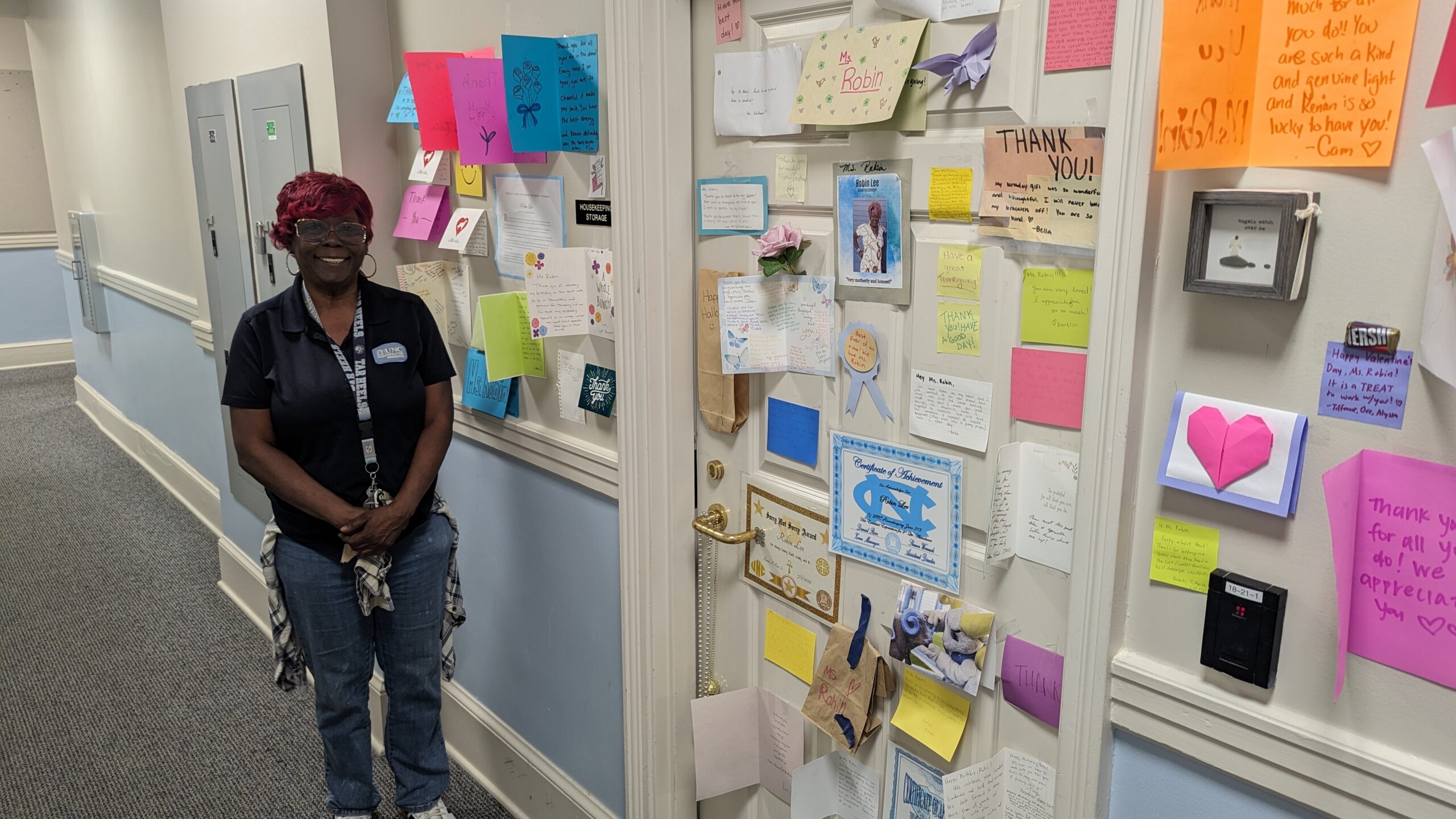
Robin Lee stands outside her space inside Kenan Residence Hall, which she is tasked with cleaning. The wall and door are covered in notes left by students and UNC community members, as well as awards she’s earned for her advocacy of housekeepers’ needs.
Some of the frustration from housekeepers also comes from what they see as a lack of communication. Lee and her colleague Tracy Harter told Chapelboro there have been no meetings between themselves or UE 150 representatives with UNC administrators since the raises were given in 2022 – let alone since Interim Chancellor Lee Roberts moved into South Building. The advocates had delivered a new petition in recent months and even hoped to attend a meeting but claimed the gathering of UNC officials had wrapped up before they arrived.
UNC said the planning process for its five-year parking plan included input from housekeepers and staff who are on the Advisory Committee on Transportation and Parking. Additionally, the transportation and parking department “invited broad input and feedback” from the broader campus community through the project’s website, town halls, and more.
“Housekeepers participated in open dialogue sessions with the previous Associate Vice Chancellor for Facilities Services Anna Wu, just prior to her 2023 retirement,” UNC Media Relations said in a statement, “and our new AVC for Facilities Services Wendy Halsey is in the process of meeting Carolina’s housekeepers to learn more about their work on campus and better understand their concerns.”
To Lee, the housekeepers’ advocacy getting no mention by UNC trustees or explicit recognition by administrators in last week’s approval is a reflection of how their perspectives are still being discredited.
“If we never pushed for this parking [change], they wouldn’t even think about this parking [update],” she said. “This five-year plan, it would’ve never come up.
“I’m still not satisfied with it,” Lee concluded, “because I feel like we shouldn’t have to pay to come to work.”
Harter said, like the 2022 pay raises, she feels encouraged that there is movement to address the housekeepers’ needs — but not necessarily encouraged about the specifics of either the 90-cent raise or the new parking plan.
“If there’s even a little bit of movement tells me that we can make even more and better movement,” said Harter. “I understand they want to try and keep making money — it boils down to the fact that [UNC] is a business, and businesses have to be able to make money. But that doesn’t mean they have to make it on the backs of those that are the least fortunate, the least paid individuals here.
“Why not,” asked the nearly 30-year housekeeper, “portray UNC as the place that is humane, that is diverse, that [cares], and leads by example? That’s the image that you should want, that’s what makes good business.”
More about UNC Finance and Operation’s five-year parking plan can be found on the university’s Transportation and Parking website. Materials presented to the Board of Trustees on May 15 can be found here.
Editor’s Note: The original version of this story has been updated to reflect UNC’s comments on housekeeper input on the five-year parking plan and additional comments from Tracy Harter.
Featured image via Jon Gardiner/UNC-Chapel Hill.
Chapelboro.com does not charge subscription fees, and you can directly support our efforts in local journalism here. Want more of what you see on Chapelboro? Let us bring free local news and community information to you by signing up for our newsletter.

